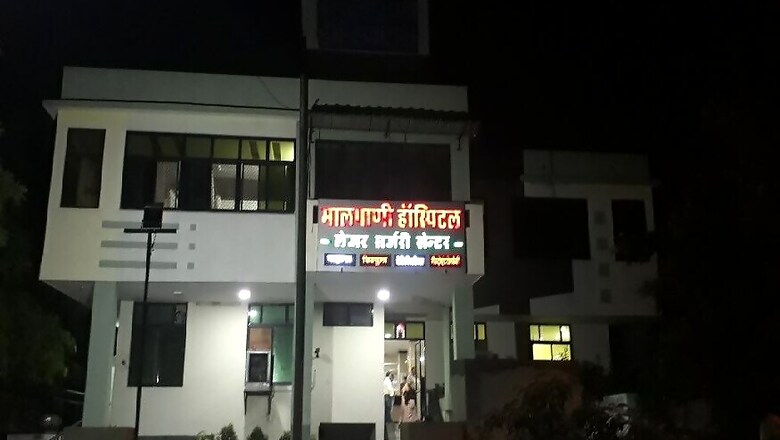
views
New Delhi: At any site of a clinical trial, a group of seven people is supposed to watch the proceedings like a hawk, including whether all rules are followed, the collection of data is done properly and safety of patients is maintained during the trial.
This ethics committee of a hospital or institution conducting the trial is the most crucial monitoring system for clinical trials in India. But if the mishap involving pharma major Glenmark in a Jaipur hospital has shown anything, it is the need to watch the watchdog.
Questionable members with clear conflict of interests meant that the monitoring committee failed to step in when Malpani Multispeciality Hospital tested Glenmark’s drug on 28 people without their consent or even their knowledge. As a result, 21 had to be hospitalized as they experienced symptoms like stomach ache, lethargy and head-ache, all congruent with the effects of anti-psychotic drugs when taken by a healthy person.
What is a clinical trial
A clinical trial is a four stage systematic study of a new drug on human subjects to collect data on how well or not it works, and what the adverse events are on people. The one ongoing at Malpani was at Phase II. Any hospital, institution of pharmaceutical company is granted an approval to conduct a trial by the Central Drugs Standard Control Organisation (CDSCO) after reviewing its application and the data from each previous phase.
The CDSCO’s Investigational New Drug Committee granted Glenmark approval in July, 2017, based on Phase I data from the UK and France, according to union health ministry officials. The trial is then conducted by a principal investigator - a doctor on site at the hospital or institute - and overseen by the ethics committee each site has to have.
The committee and consent
Made up of members from the medical sciences and non-scientific areas, the committee is responsible for “overseeing the conduct of clinical trial to safeguard the rights, safety and wellbeing of trial subjects”. So say the New Drugs and Clinical Trials Rules, 2018, laid down in the draft Drugs and Cosmetics Act. The Act, according to researchers, has only added to the responsibilities of ethics committees
Every subject - the person tested upon - has to give an informed and written consent to be part of the trial. The new rules, and the guidelines brought out by the Indian Council of Medical Research are very clear on the matter of informed consent.
The committee holds much power in its hands. If, say the rules, “at any stage of a clinical trial, it comes to a conclusion that the trial is likely to compromise the right, safety or wellbeing of the trial subject, the committee may order discontinuation or suspension of the clinical trial.”
Accountability and lack of manpower
According to public health researcher Anant Bhan, the sponsor, or the company that runs the trials, has a huge responsibility of making sure the ethics committee is in order, since it affects their data collection.
Often companies approach hospitals in areas they need to conduct a trial to ask them to set up a committee, if they don’t already have one. However, the local arms of the CDSCO have to grant approval.
Despite the CDSCO trying to fill its ranks, it still lacks the manpower to monitor all trial sites in the country as closely as they need to be. Oversight happens especially in smaller, more nondescript, hospitals acting as sites. Bhan pointed out that states with many pharma companies actively involved in research have more agile local officers, such as Maharashtra or Gujarat.
Rajasthan is not such a state. The local law bodies, the CDSCO and the companies conducting trials have to work in consonance with each other to make ethics committees run smoothly.
Troubled past
India’s chequered past regarding clinical trials makes is crucial that the house be set in order. After a botched trial testing the HPV vaccine among adivasi girls in 2005, where again informed consent was not taken, the Supreme Court had stepped in and tightened clinical trial rules so much that the scientific committee felt all research was being choked in India.
Additionally, the HPV vaccine, which could potentially prevent cervical cancer in women, became so embroiled in the controversy that public health activists and the ministry still cannot see eye to eye. The former say its safety was never proven while the latter has been trying to introduce it to India’s immunisation programme for years.
The health ministry and the ICMR, in the last few years, have been working to loosen those regulations, while keeping subject safety and rights at the forefront. The new rules, said Bhan, at least made the accreditation process of the ethics committees a stronger, more thorough one, to ensure quality. Whether these rules have an impact, once the Act is passed, remains to be seen.



















Comments
0 comment